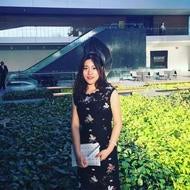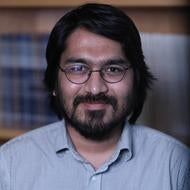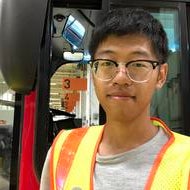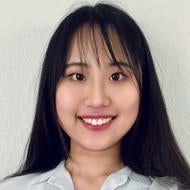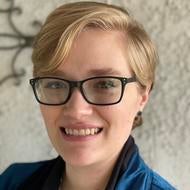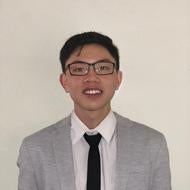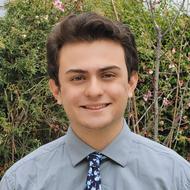CE-CERT Announces 2021-2022 Scholarship Recipients
CE-CERT is proud to announce the recipients of the 2021-2022 Scholarship Awards. This year, thirteen students were awarded a total of $44,500. We would like to congratulate them on their hard work and thank our generous donors who made these awards possible.
Graduate Recipients
Chas Frederickson, Mechanical Engineering
Miller Durbin Research Award
Chas’ current research studies the operational patterns of various non-road equipment and marine vessels. In the non-road side of his research he studies the activity of construction, agricultural, and cargo transfer port equipment. In the marine vessel side of his research, he focuses on harbor craft vessels and their operational patterns within their resident harbor. He hopes to expand his research to incorporate ocean going vessels. This category of marine vessels makes up a large portion of the marine vessel population. They also provide unique research challenges that will broaden my testing experiences. After graduation, Chas hopes to work at an engine manufacturer company in their emission control sector or a government agency where he will contribute to better understanding and mitigation of pollution from mobile sources.
Xishun (Heeson) Liao, Electrical and Computer Engineering
Esther F. Hays Graduate Fellowship
Heeson is currently working on implementing the “Digital Twin” concept in the Transportation Systems Research area, allowing physical entities (e.g., road users and infrastructure) to be well modeled and represented by their respective digital replica for building an intelligent transportation system (ITS) in the cyber world. One of his research goals is to understand human driver’s behavior to improve road safety, traffic efficiency, and the environment. To be specific, on one hand, this research can improve the operation for automated vehicles when they interact with human drivers; on the other hand, it can also provide speed guidance to human drivers. Heeson chose this major because he wanted to develop real-world applications that can contribute to improving road safety, traffic efficiency and reducing greenhouse gas emissions.
Tianbo Tang, Chemical and Environmental Engineering
Salim Khan Award
Tianbo is the lead graduate student researcher on the Emissions and Fuels Research group’s new ethanol project involving the comparison of exhaust emissions between E10 CaRFG and splash blended E15. The purpose of this project is to investigate the emissions impact of increasing the ethanol content of California gasoline from 10% to 15% on a total of 20 light-duty vehicles from various technology groups (i.e. engine displacements, year, make and model). This project will facilitate the California Air Resources Board’s adoption of the E15 specifications requested by the ethanol industry. He recently participated in the new light-duty lab (in partnership with the automotive consulting firm AVL) to build up, place, and perform practice tests on the necessary instruments to check and verify the new systems.
Ningjin Xu, Chemical and Environmental Engineering
Colin E. Hackett Graduate Award
Ningjin’s current research focus on the design, construction, and characterization of two flow tube reactors, which are Accelerated Production and Processing of Aerosols (APPA) reactor and Bio-OFR. She is working on laboratory studies of the APPA reactor, which can be a useful tool to study aqueous aerosol formation. Recently, more of her research has been directed to the aqueous-phase processes to eliminate the uncertainty of the traditional atmospheric models that tend to underestimate the amount of SOA in the atmosphere significantly. The APL research group previously designed a Particle Formation Accelerator (PFA) OFR for studying gas-SOA. Several characterization experiments were deployed in the APPA reactor as they did in the PFA OFR, including particle collection efficiencies, intensity level and distribution, the residence time distribution of gases and particles, and droplet formation and size distribution.
Jubair Yusuf, Electrical Engineering
Esther F. Hays Graduate Fellowship
“This award has ensured that I am on the right track in terms of research. My research is worthy of getting recognition among all other exciting research happening at CE-CERT. This will surely motivate me to do better and more groundbreaking research. It will encourage me to work harder and be more productive.”
Jubair’s research focuses on electric vehicle integration into the smart grid. The current research topics include: Optimization of integrated distributed energy resources with vehicle to grid (V2G) operation; Smart charging and discharging strategies for a Plug-in electric vehicle (PEV) in a workplace setting; Data-driven PEV load modeling for a public PEV charging station; and Analyzing the grid impacts of PEV integration. His future research goals include the analysis of environmental benefits from electric vehicle adoption. Moreover, he wants to develop algorithms that can overcome the challenges associated with mass EV adoption and benefit all the stakeholders (PEV owner, Building/Charging Station owner, Grid operator).
Zhouqiao Zhao, Electrical Engineering
Esther F. Hays Graduate Fellowship
Zhouqiao’s research focus is on intelligent transportation system (ITS), especially connected and automation enabled cooperative management framework for mixed traffic. Introducing cooperation to the road users, could result in major improvements in safety, mobility, and environmental sustainability. After graduating, he aims to bridge the gap between research and industry by designing the blueprint of the future transportation system to optimize safety, mobility, and energy efficiency. Zhouqiao pursued this major because he believes that the automation and robotization will be (and has already been) the revolution that could deeply change the relations of production and also improve the efficiency and sustainability of operating. He hopes to be one of the people contributing to this revolution.
Hanwei Zhu, Chemical and Environmental Engineering
William R. Pierson / Ford Graduate Award
This fellowship would give Hanwei the opportunity to go beyond the realm of the emissions testing and give him a chance to present his research at major conferences and workshops, which he hopes will potentially benefit the public. Hanwei’s research activities mainly focus on in-use Heavy-duty emission testing and retrofit technology for control of on-road Heavy-Duty engines. He has also worked on characterizing emission rate from off-road vehicles using portable emission measurement system (PEMS). He originally pursued this major because of the high contribution of vehicle emission in air quality issues – hoping to make an impact on clean air issues.
Zihan Zhu, Chemical and Environmental Engineering
Esther F. Hays Graduate Fellowship
Zihan’s research consists of two parts: drone-based multi-gas measurements and the Captive Aerosol Growth and Evolution (CAGE) chambers study. During her drone measurement research, she completed a four-month continuous daily ozone and particulate matter measurements throughout the pandemic. Currently, she working on analyzing the data and developing new approaches to include NOx measurement in this year's ozone season. For the CAGE study, two CAGE chambers are developed in a parallel mode with gas-phase and seed aerosol perturbation experiments planned to be performed. Currently, she is working on installing and testing the chambers' hardware. Zihan will lead the field study at the Southern Great Plains (SGP) Atmospheric Radiation Measurement (ARM) site in Oklahoma over a two-month period. Her future research goals are to establish a long-term database for the ozone vertical measurement.
Undergraduate Recipients
Yi Ji, Environmental Engineering
Jim Guthrie Research Award
“This award recognizes the hard work and effort that my PI and I have extended for our wildfire and low-cost sensing research, as well as the work I have done as a community scientist. This award has motivated me to work harder. Moreover, with the financial support, I will dedicate more time and invest in more resources to support my ongoing research at CE-CERT.”
Yi’s current research project involves the study of air pollution impact from wildfire smoke transport. Additionally, she is also using low-cost sensors to study the air pollution trends in Southern California. Yi also is mentoring students from Riverside Unified School District for their research project on air quality. After graduation she hopes to pursue her Ph.D. degree.
Grace Johnson, Mechanical Engineering
Ford Motor Company Undergraduate Award
Grace’s research goals are obtaining a foundation in automotive engineering, specifically emissions from vehicles. She is interning at a local automotive emissions testing facility where she reviews and reports on emissions data from vehicles. This experience will have a great foundation for automotive engineering to pursue her future research goals. This award will help with the cost of training on measurement systems for brakes, travel to vendors for installing sensors in the brakes, and purchase materials to help me learn about the chemicals used in brakes, measurement tools for brakes, and addition literature needed for research.
Alexander Nguyen, Biochemical Engineering
Jim Guthrie Research Award
“The Jim Guthrie Research award will help me be able to focus on research and school. The extra money will allow me to take time off of my work and focus on pursuing the academic endeavors I have set forth to accomplish. This will also allow me to obtain the funds for software and hardware for cloud computing and code development.”
Alexander has assisted in the research on the Innovation Corridor, which is a stretch of road through Downtown Riverside that has been zoned as a testbed for the development of technological solutions to reducing the number of atmospheric pollutants generated from urban environments. His role on the project is to provide data analysis and modelling to allow principal investigators to focus on the main objectives of the project. Alexander hopes that his future research will attribute to the solution in creating a sustainable future for Earth and aspire to one day help solve the global atmospheric crisis humans have generated.
Dwaraknath Ravichandran, Electrical Engineering
Jim Guthrie Research Award
“As an electrical engineer, I saw myself capable of making change that would last not just for this generation, but generations to come. And with the diverse topics and focuses that fall under electrical engineering, I saw the possibilities to be endless as what I could contribute to society.”
Currently, Dwaraknath is working to observe the effects of COVID-19 induced lockdowns traffic activity and the air quality levels in the Southern California region. He is also assisting in developing research on possible correlations with socio-economic factors of the observed areas, to see if disadvantaged communities have been more affected by the decrease in traffic activity caused by the pandemic. Post-graduation, Dwaraknath sees himself working at a company that has a mission that he can be proud of. He hopes to be able to work in a career that gives him flexibility, as well as the opportunity to work on a diverse set of projects that would
help continue further his knowledge within STEM.
Kevin Urrutia Avila, Electrical Engineering
Jim Guthrie Research Award
“This award will affect my life by providing me the opportunity to get hands-on experience in times where it is difficult to get this experience. Ultimately, being an engineer entails a degree of learned skill as well as intuition that comes from working with physical systems that cannot be achieved from simulations or modeling. The award allows me the opportunity to invest in engineering tools that allow me to develop the intuition I need. This award in this way improves my quality of life because these are skills that are indispensable to an engineer.”
Kevin’s research currently involves improving the field of precision agriculture through the use of autonomous ground drones and soil sensors. The drone moves through the field passing multiple soil sensors and collection data on the conditions of the soil through Bluetooth. In turn, the drone allows for the farm management to get an accurate representation about the conditions of the land in a form of a gridded GPS map. Allowing the farm management to adjust their agriculture techniques based on these maps and for a more sustainable form of managing the land.



